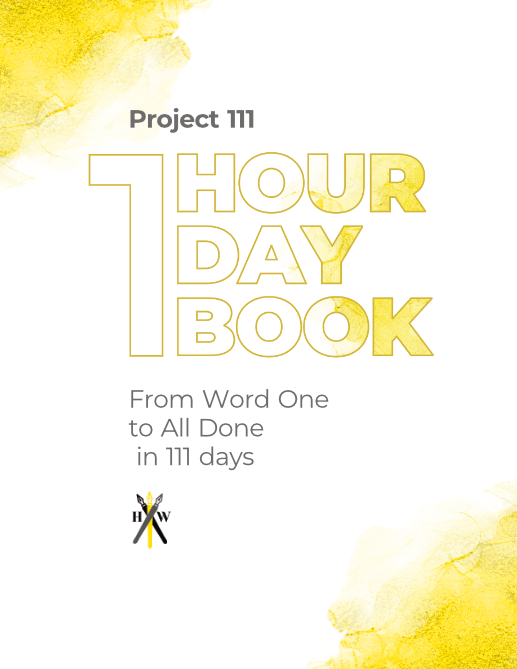What makes a “compelling story” can be tricky to define. We know it when we read it or watch it, but sometimes we fail to recognize why it gripped our hearts and minds.
But one thing is clear: compelling stories are the ones that stick with us, or at the very least, offer a few hours of high octane entertainment.
But how do we craft stories that compel? How do we write a story that grabs the readers’ attention and carries them through to the conclusion?
You won’t find a single answer anywhere, but we’ve come up with 7 methods you can practice to get your readers eager to flip through every page of your book.
1. Immersive Worldbuilding

All fiction involves worldbuilding, but few genres take this task to the same heights as science fiction and fantasy. Sometimes an interesting world is all a story needs to compel a reader.
Worlds that teem with endless possibility often prove the most successful in this regard. Middle Earth presents a world full of culture, magic, and history.
Rick and Morty‘s multiverse brings a nearly unmatched zaniness that excites viewers.
Terry Pratchett’s Discworld and Douglas Adams’ universe introduce absurdity through chaotic locations, bizarre creatures, and unexpected forces.
By improving your worldbuilding, you can form settings that engage the readers immediately and let your stories feel organic to the world.
Along with worlds, a compelling magic system can keep your readers engaged for hundreds, if not thousands, of pages. If you want to write excellent magic systems check out this article or this one.
2. Accessible Stakes

One of the fastest ways to compel readers comes through accessible stakes.
Accessible here means clearly understood. Knowing the stakes of a story can help in so many ways, but it can ease a reader’s workload and let them more comfortably delve into a story.
Have you ever been frustrated by a show, movie, or book because you thought it would be one way until they change a (let’s say) romance into a science fiction piece about aliens wanting to take over the world?
This frustration came from a sudden and drastic change of stakes (and genre). I find that if done poorly, these stories immediately lose my interest because I no longer care about what I thought I should care about.
Accessible stakes can provide a sense of urgency that compels the audience to keep reading. They want to know if the girl gets the boy, if the elves can save their city from the dragon, or if the interplanetary alliance can rebuff the space invaders.
The earlier and clearer your stakes are, the more likely your readers will pique their interest.

Our 84-page book planner and 111 day writing course.
3. Characters to Care About

A compelling character can quickly make a compelling story. Browsing forums for your favorite books can reveal how fiercely devoted readers are to certain characters.
Characters that teem with personality beg readers to find out more, to see how they view the world, and to live in their brains.
We as readers are for more willing to forgive a boring story if we enjoy the character. We care less about what events happen and more about how the character reacts to them.
If you need help coming up with character ideas, try this article.
4. Early Promises

Giving your readers promises early on is a great way to retain their attention. This idea follows along the lines of accessible stakes, but the promises can be any number of things beyond stakes.
You can promise your readers about the tone of the book, the emotive response they may have, a wild scene that will stick in their memory, or an interaction between two characters.
Sometimes you can make these promises through a frame narrative or non-linear storytelling. Often, the promise comes by showing the ending at the beginning and then the audience wants to know how everything got to that point.
Whatever it is, giving early promises to your reader will help them read with a purpose. They will know that even if there are slow points in the novel they’ll eventually get that action scene you promised or may eventually bawl their eyes out.
“Making a promise” to your reader shouldn’t sound like “I, the author of the novel, hereby promise that by the end of the 14th chapter you will gasp so suddenly that you have a coughing fit from the spit you inhaled.”
The way you make a promise is by carefully including (or excluding) certain things from the beginning of your book. You can promise death by including death in the first chapter. You can promise heartbreak by showing sadness.
You can do it plenty of ways, but it becomes a promise from the onset of the story.
5. Possible Twist

Everybody loves a good twist, and you can include the compelling factor of a twist by showing the reader that a twist is possible.
You can achieve this effect by having your characters and your readers not know something that’s pivotal to the plot.
When the reader and the characters work in tandem towards figuring out a key plot element, they find evidence and propose theories like a game of Clue. That engagement goes far beyond just reading words on a page.
Even if you don’t have a grand reveal, the reader can still feel like they earned something if they were right. If they were wrong, then you’ve got a plot twist on your hands.
The issue with this comes if you follow tropes too closely. You don’t want to disappoint your readers.
6. Romance!

Whether people care to admit it or not, romance is a compelling force for most readers.
You don’t need to write a romance novel, but having romantic elements in your story can greatly enhance your readers’ interest.
Including romance in your stories opens up your characters and makes them vulnerable. It also includes the drama of risk and reward.
We as readers want fireworks and romance brings that whether the relationship works or not. If things work out, the reader is satisfied with the union (if they like the characters), and if it doesn’t, they get to watch an explosive downfall.
If you need some ideas on writing romance into stories (or romance stories) check out this article.
7. Unorthodox Medium

This may seem like a gimmick, but if done right, telling your story in an unusual way can be all the reader needs to engage with it.
The following aren’t necessarily unorthodox, but they are deviations from the norm:
Epistolary novels (telling a story through letters), non-linear storytelling (the story’s chronology doesn’t flow like normal time), stream of consciousness (no punctuation), and frame narratives (telling a story within a story).
There are plenty of other ways to be unorthodox, including any you can imagine. By nature, unorthodox stories break the norm, and by pushing convention to its limits, you may come across a brand new style of storytelling.
Also by nature, you may lose some readers who are only interested in following normal novels. But for others, they may love to see how you tell a story just as much as knowing what the story is.
Conclusion

A story’s greatest enemy is the reader’s boredom. If the person who picked up your book feels like putting it down, odds are they will, and the more they put it down, the more likely it is to stay down.
Writing a compelling story will give your readers a sense of urgency to keep reading.
Specializing in one of the above seven ideas can make your writing vastly more compelling.
You can dedicate your time to building interesting worlds, clearly displaying the stakes, crafting engaging characters, nailing down intriguing promises, hinting at the possibility of a twist, spicing up your story with romance, or trying unusual ways to tell stories.
Practicing these skills will help you write more compelling books, movies, or stories that your audience can’t get enough of.
For more helpful writing tips, check out the Habit Writing blog!
gavinwride
Gavin is a fantasy author, short story enthusiast, and nature lover. When he’s not reading, writing, or exploring the outdoors, he is likely playing games. His board game collection is probably too big for someone living in a small apartment, and he has enough yet-to-be-played video games to fill a lifetime. His favorite book is "The Name of the Wind". His favorite author is Edward Abbey. His favorite game is "Dark Souls III", and he’d be more than happy to spend the day talking about lore, bosses, and game mechanics.
Our 84-page book planner and 111 day writing course.
